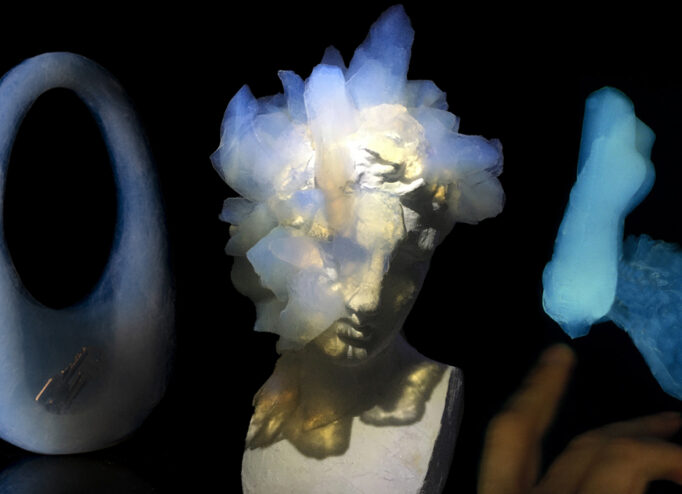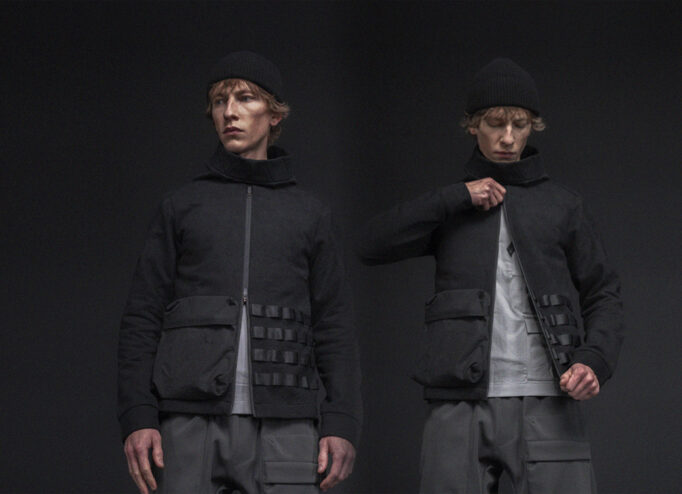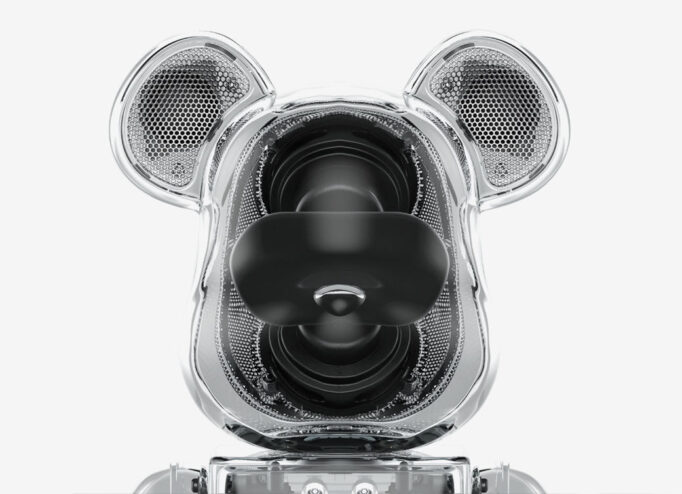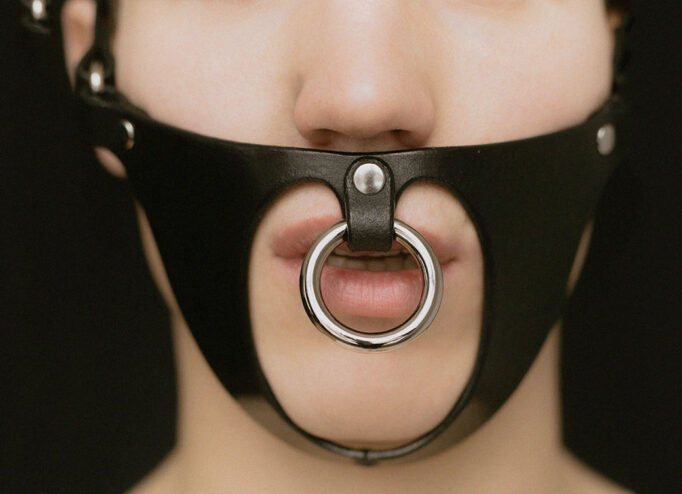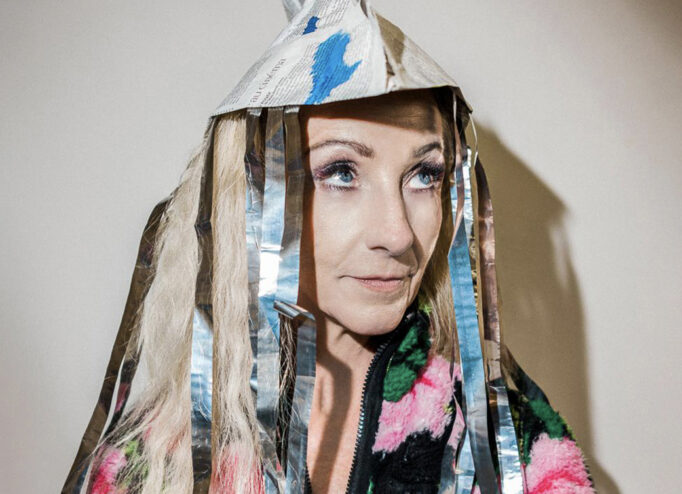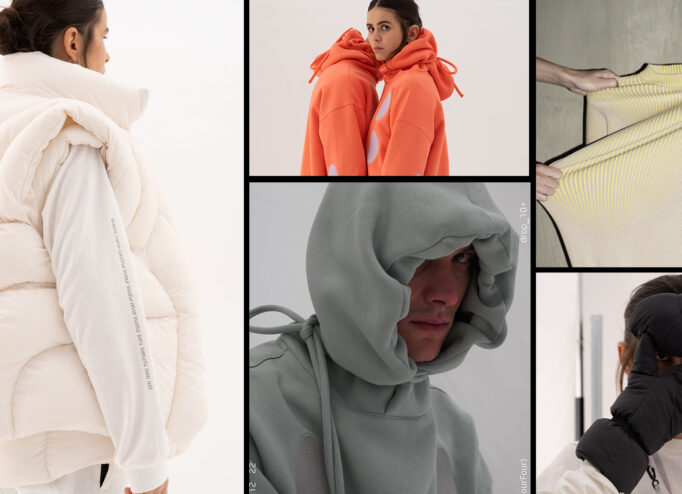In April 2023, Elina Svitolina, who is the most famous Ukrainian tennis player and who has won the most trophies, was on the court not in her usual Nike uniform, but wearing the Ukrainian brand Paka. The athlete has been playing in it for several months already, having won a series of victories after returning from maternity leave. That is how the wide audience found out about the existence of the Ukrainian brand of tennis clothing — by the way, the first one in the country.
But in an interview with DTF Magazine co-founder Serhiy Pavlenko clarifies: Paka is first of all a fashion brand of tennis clothing. Unlike many other sports brands in this segment, they sell sets, not just T-shirts or skirts.
Serhiy founded the brand with his wife in 2017. In 2022 they opened a tennis academy in Dubai, and this year they started to implement a large-scale plan: to be represented in partner stores in Europe, the USA and Canada.
DTF Magazine asked Serhiy about the ambitions of the brand, why they position themselves as a fashion brand of tennis clothing and are against discounts, why it is difficult to open a tennis academy in Ukraine, and how Paka signed a contract with Svitolina
Briefly about Paka
The Ukrainian brand of tennis clothing was founded by Serhiy and Maria Pavlenko in 2017. Paka produces women’s, men’s and children’s clothing. Last year Paka released two collections: World — with prints in the colors of the flags of four countries and Reborn, which includes women’s and children’s tennis dresses, men’s and children’s sets of shorts and T-shirts. Each look can be matched with socks and wristbands.
Paka production is located in Kyiv, and fabrics and other materials are directly delivered by the manufacturer from Europe. Such tennis players as Vladyslav Orlov, Elina Svitolina and Viacheslav Siedoplatov cooperate with the brand, and Paka also makes uniforms for the Ukrainian Tennis Federation. In 2022 they opened a tennis academy in Dubai..
Contract with Svitolina and the price of top tennis players
— Since April of this year Svitolina began to play in the uniform of your brand. How did this collaboration begin?
— We organized tournaments in Ukraine, helped children’s schools, donated uniforms in Zaporizhzhia, and had different programs to popularize tennis among youth and children. We cooperate with Oleg Panchenko and we designed the men’s uniform with the Ukrainian Tennis Federation.
The tennis players already knew us, but we released the women’s uniforms only six months ago — we had production problems. As soon as we released this collection, the stars aligned: Elina returned from maternity leave, started to get back into shape and play tennis. We contacted her manager and realized that she didn’t have a contract yet.
I didn’t even believe that we would be able to connect with Svitolina. But she is very sociable, friendly and agreed to cooperate with us on contractual terms — of course it is not for free.
Our contract with Elina is still valid for a few months. Maybe in the future we will sign it again, but for now we enjoy the collaboration and are proud of how she is getting on the podium again.
— How difficult is it for a Ukrainian brand to reach athletes like Svitolina?
— In fact, there is a price. Brands pay millions of dollars to top ten players and tens of thousands to top 100 players. Plus, the terms of the contract include financial support. That is, if you have money, you can outbid competitors for any athlete, it’s purely a financial component.
Players, whose rating is from 100 to 200, can expect to be provided with uniforms, bags, etc., but without monetary compensation. Other tennis players constantly write to us: ‘Please give us uniforms, we want to cooperate with you’.


Elina Svitolina in a Paka uniform

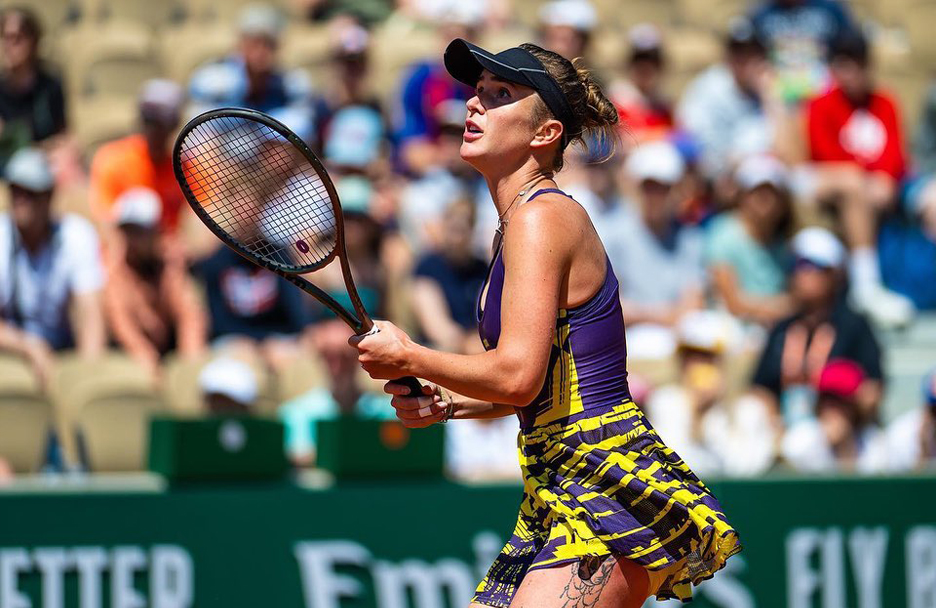




‘We want to promote ourselves right on the court’
— Is the competition in your segment strong, both in Ukraine and in the world?
— The problem is not with the buyer, but with the seller. For example, Nike may provide a 50–80% discount: a T-shirt costs one thousand UAH, and they sell it for two hundred. But our production cost is five hundred, so given the scale of our production we can not provide the same discount a priori.
There is very tough competition in terms of price dumping, and we are used to it in Ukraine. In particular, large stores such as raketka.ua, Wilson or sport.ua give crazy discounts, and if we gave the same discount, we would be very expensive.

 We’re going a different way and we want to communicate with our brand fans and coaches. Not with stores and companies, but with a person who wants to develop the brand with us.
We’re going a different way and we want to communicate with our brand fans and coaches. Not with stores and companies, but with a person who wants to develop the brand with us.
She/he will wear our uniform and will promote the brand. We want to promote ourselves right on the court with the help of coaches and tournament organizers.
Again, we are against discounts, but for gifts — extra socks, wristbands. If a person buys three sets — we will gladly give him/her a fourth. Because a discount devalues it all: it means that the product is worse, cheaper, unfinished — at least in my mind. And Paka is a fresh, unique product, made not by a robot, not in the cellars of Vietnam, but in Ukraine by these hands, which means that everything is beautiful and clear.
— Are there any criteria that tennis players must meet to become your ambassadors?
— Yes, we carefully monitor the media component and how engaged the person is and how ready they are to talk about the brand. When they ask them what T-shirt they are wearing, they won’t just tell them the website address, but they will say that it’s a cool brand from Ukraine and they like it a lot. Humanity is important to us.
And, of course, she/he should play somewhere, play in some clubs, be as media-friendly as possible for her/his level. Athletes should not post alcohol, cigarettes, nightclubs on Instagram. They should play on the court, be with their family or in the gym and carry that message. I, for example, never drink alcohol or smoke, and all of our employees don’t smoke. We hold sporting events and wakesurf — in other words, we advocate a healthy lifestyle as much as possible.

— Do you primarily produce uniforms for semi-professional athletes or professional athletes?
— At the beginning of our career we started sponsoring one tennis player, we sewed uniforms for him, and we sent him many sets. He told us that the umpire wouldn’t let him go on the court. It was our first fuck-up, but we had to go through it.
Then there were criteria, given which we understood what kind of logo and where we can place, what colors we can use.
Now every Paka uniform is customized for professional athletes and ready for any competitions and Grand Slam tournaments. That’s why we test and communicate both with the Ukrainian Tennis Federation and with professional players.
And as for amateurs… For example, I’ve been playing tennis for six years and I follow Roger Federer: how and in what clothes he plays, what racket he has. So anyway, an amateur wants to resemble a professional, to play in the same uniforms that the professionals play in. The day Svitolina played in our uniform, we saw a surge in sales of the dress she was playing in all over the world.




The first one in Ukraine.
How Paka was created
— What preceded the founding of Paka?
— Let me start by saying that the name Paka comes from two last names: my and my wife’s last name, Pavlenko, and our friend’s last name, Kalinicheva. When I came up with this name, I said that when my wife and her friend would sew tennis clothes, then I, because I play tennis, and my fellow tennis players would become regular customers. At that time there were no tennis clothing manufacturers in Ukraine, so we decided that it was better to be unique and already have clients.
The history of the brand started with the fact that we drew designs on paper, looked for seamstresses and didn’t even have an office: everything happened gradually. I spent a lot of time on this: I played in this uniform, I took measurements, I analyzed it. I am still as involved in the brand as possible.
— You have two collections on your website: Reborn and World. How does the idea for the collections come about?
— We are constantly testing the market. At first we divided the collections into classic and extravagant, as well as into expensive premiums and cheaper ones.
If you look at what brands were doing five or six years ago, for example Nike, it’s a white top, blue bottom, that is a white T-shirt and blue shorts.
We wanted to be different, we wanted everything to be great, we wanted to stand out with our designs. That’s why we started producing limited edition collections: only 20 copies of each design.

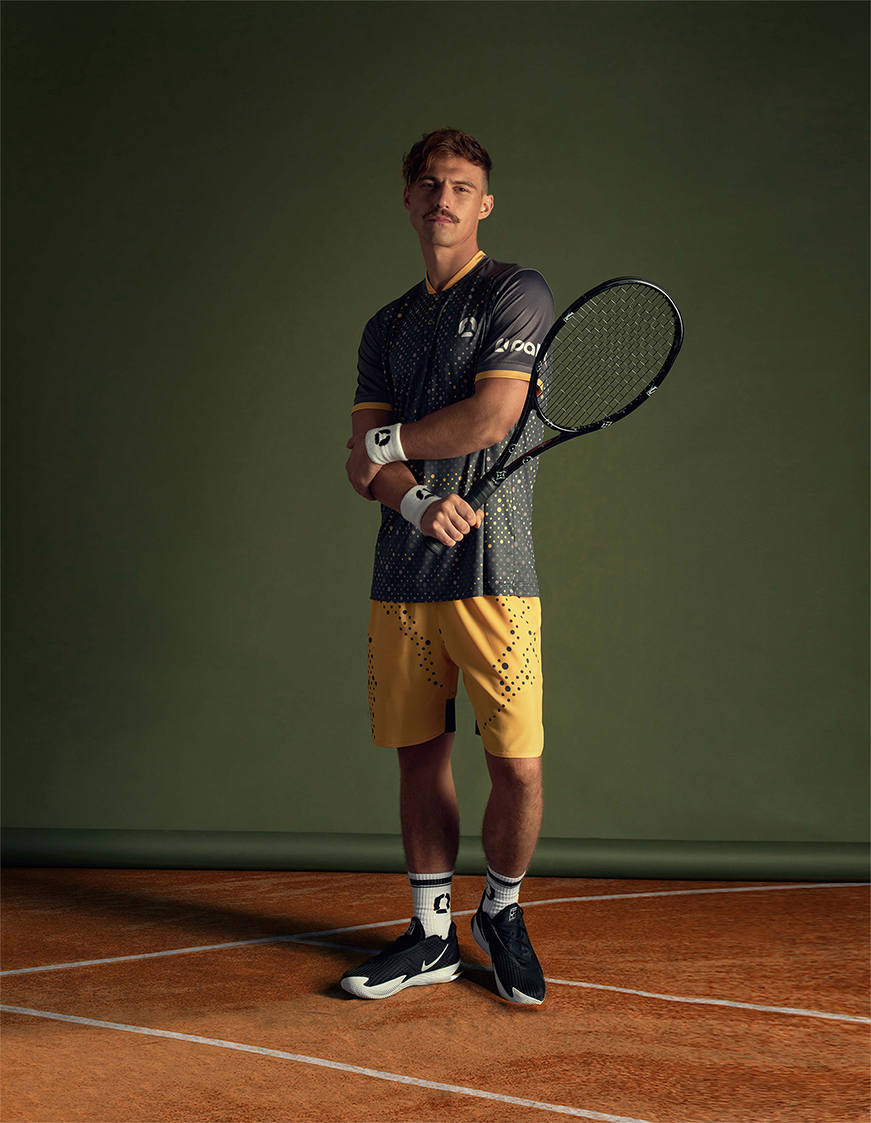






A lot of people moved to another country because of the war. And considering people’s desire to buy our items as a gift because they wanted to share our brand, we made a World collection — items with prints of four countries (Ukraine, Poland, the UAE and the USA. — Note from DTF Magazine).
The Reborn collection is about rebirth. We changed the logo two years ago, rebranded our company and started sponsoring tennis players. A brand always has stages of development. Pepsi changes the logo all the time, and we’re not lagging behind: we created a new one and were reborn.






— How often do you release collections?
— It takes about a year to create a collection. The designers and I get together, we discuss trends, we understand what is beautiful and interesting, what colors we can use. We started developing Reborn before the war, and it came out in 2022.
It was difficult to create this collection: some people left, but we continued to support the employees, we did not fire anyone, and we even increased the salaries, because we understand that these are difficult times and that we need to continue to develop the Ukrainian brand. Currently, a new collection is being created.
— And it’s coming out next year, right?
— Now our cycles are broken. We have plans to create two collections, spring and fall, meaning the designs will be updated twice a year seasonally. The active seasons are spring, when everyone starts playing on the court, and fall, before the season closes. Some brands have more collections. Brands like Nike or adidas produce capsule collections for Grand Slam tournaments. They can afford to change assortments more often. But we chose two seasons, and that’s super for our market.
Why don’t Paka create monochrome T-shirts
— Your website states that your uniforms are made of a comfortable fabric which maintains a flawless look even under the most dynamic loads. Tell us more about this fabric and the other materials you use.
— For the last three years we have been working with a partner from Europe using direct supplies and contracts. This partner produces fabrics for sports, and it is a real mecca of all kinds of sports, from swimming to soccer.
We see that they are evolving, they are improving their fabric and we are evolving with them. That is, the latest Reborn collection is made of a brand new fabric, which is much lighter than the materials used in previous collections.
Tennis is an active sport, so our goal is to make the lightest possible T-shirt that will be as water-repellent as possible.
If you sweat, the fabric technology should be such that it absorbs the sweat and dries the T-shirt. In order to avoid a wet collar, which would cause discomfort, the moisture is distributed throughout the fabric and so it dries faster. This is the technology that all the advanced brands use. We can’t and don’t want to compete with them, because we are a fashion brand.
We sell sets, not just monochrome T-shirts, because we want to teach people how to look stylish. We have wristbands, socks, and headbands that match the color of the set. That’s one of the features of Paka. We get all materials and super elastic yarns for sportswear fabric from Europe and we sew them in our own production facility in Kyiv. Usually in our country other manufacturers have someone else to do the sewing, but machines for cotton and synthetic fabric must be set up differently, and it’s difficult to control using outsourcing.
— How do you test your products?
— There are professional tennis players, fans of our brand, who help us. They participate in surveys and development, we consult with them, for example, about what collar they think is comfortable, and together with them we create it.
Moreover, together with the employees we test everything personally: we check everything. That is, at the first stage we test, at the second stage — professional tennis players test, and then we finalize everything: the designer has to confirm that it looks good, and the tennis player — that it is comfortable.



— You have other businesses besides Paka. In what fields?
— In different fields. At some point my wife started paying less attention to Paka, so I asked her to supervise a beauty salon. In Dubai, where I am now, I started a web design and marketing company, that is, we create websites, design, branding, logos.
Paka is one of my first businesses, which was a chamber business because it was created for me, for my friends and family. Now it’s a real business, with cash flow, employees, and international expansion. But at first I saw in Paka an opportunity to do something interesting and new for myself.
We give gifts and often create unique prints. For example, we made a unique print for our friend’s birthday or New Year’s greetings for customers and partners (for example, in 2019, Paka released Ho-Ho uniforms with a festive print, which, as noted on the brand website, were given to top customers on New Year’s Eve. — Note from DTF Magazine). It’s such a way of communicating, it’s our emotional outlet and enjoyment that’s constantly scaling.
Scaling in an international business context
— You opened a tennis academy in Dubai in 2022. Why did you do that?
— We’ve been living here for a while and we see that some coaches and just people have moved here. And we understand that we can provide service and quality to our fellow countrymen and teach children in Ukrainian language. Because, unfortunately, not many people in Ukraine know English, and if you teach a child to play tennis in English he/she will hardly understand anything.
— Are you planning to do something similar in Ukraine?
— Of course we plan to. But in Ukraine there are many academies, each court has its own academy. In Dubai it’s a different market: here every clubhouse has its own courts, and it’s convenient for people to go out into the courtyard and play tennis.
We took advantage of that, so we started coming to the client’s courts to hold seminars and train. In Ukraine it is different: for example, in Kyiv there are ten tennis courts, but each of them already has clubs, someone bought it for a year or even for life. So there is too much competition there.
The club is, first of all, coaches, and if we understand that there are 4-5 cool coaches, the brand will unite them all in Ukraine. This is exactly what happened in Dubai: we found three coaches who fit our ideology and perception, who were ready to train every Saturday and sometimes hold free classes.
Starting in September, we plan to hold free masterclasses for Ukrainians once a week. It is not difficult and practically does not cost anything, but it popularizes tennis in Ukrainian and provides support.
— What are your ambitions as a tennis clothing brand?
— This year we decided to scale our business globally. The task for the next few months is to be represented in every country in Europe, in the United States and Canada, in one or two cities, that is, to find partners there. And then we will develop the business, because each country has its own peculiarities.
We understand how friendships are built in Ukraine, in Poland it’s different, in Spain it’s completely different, also there may be different prints, there we will need to adapt items to a different climate.
It is a little bit difficult, but it is interesting: we have entered this battle and we will try to show our brand and our country on the international arena. Because there are no Ukrainian tennis brands: we are the first to pave this way and try to move forward.
— And where do you have offline stores?
— Only in Ukraine. In all other countries we work online, with international delivery.
When we didn’t have a women’s collection or anything else, there was a narrow focus. After we released the women’s collection, we realized that we could add a children’s collection. Now we will fully provide the Ukrainian Tennis Federation with sportswear for official events, that is, our range will be much wider and we will become more interesting and bigger for international markets.

